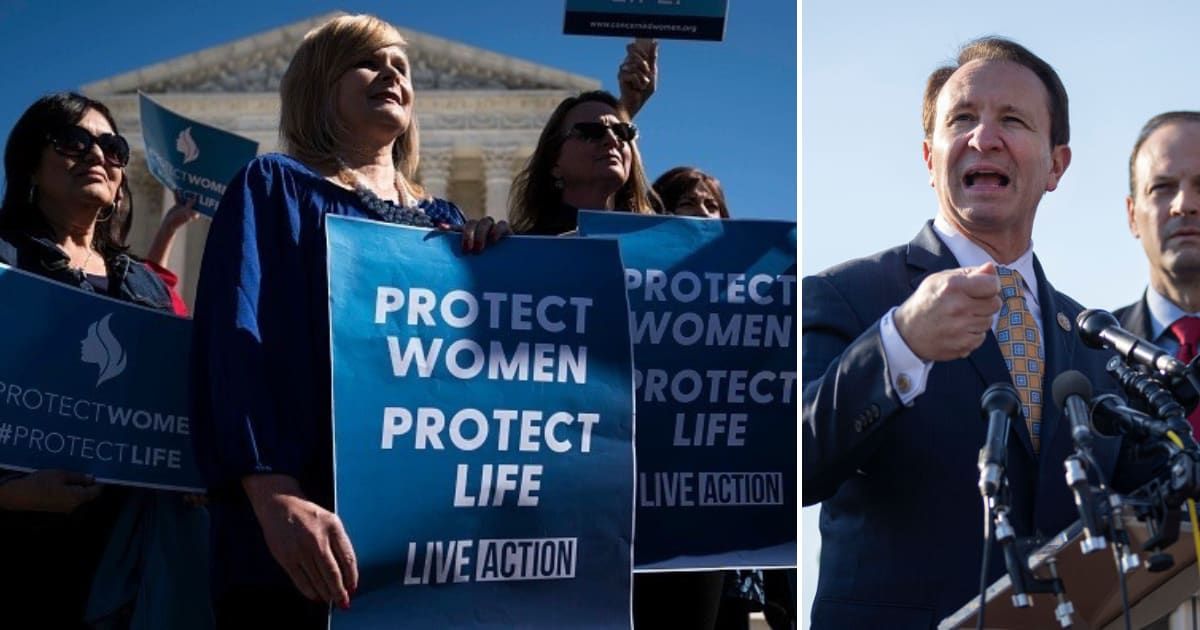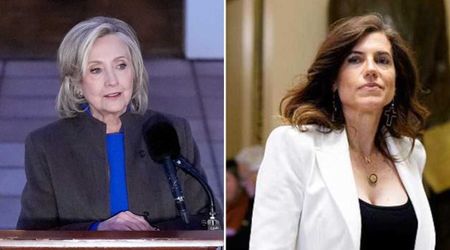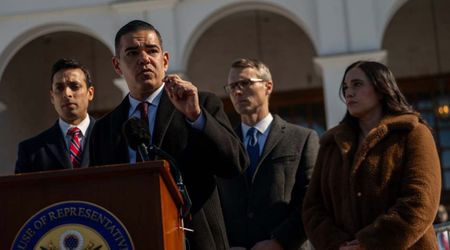Jeff Landry called 'insane' as he signs bill classifying abortion pills as controlled dangerous substances

LOS ANGELES, CALIFORNIA: Louisiana Governor Jeff Landry has signed a bill that uniquely classifies two medications, often utilized in abortion procedures, as controlled dangerous substances within the state.
The bill, passed by the Senate with a notable majority, designates mifepristone and misoprostol under Schedule IV of Louisiana’s Uniform Controlled Dangerous Substances Law.
Governor Jeff Landry claims bill will protect women
Governor Landry took to social media, asserting that the legislation is a safeguard for women across the state. He wrote, "This bill protects women across Louisiana and I was proud to sign this bill into law today."
Requiring an abortion inducing drug to be obtained with a prescription and criminalizing the use of an abortion drug on an unsuspecting mother is nothing short of common sense. This bill protects women across Louisiana and I was proud to sign this bill into law today.
— Governor Jeff Landry (@LAGovJeffLandry) May 24, 2024
Thanks to… pic.twitter.com/WJEjuqlw2Y
This move, however, met with criticism from various quarters, including medical professionals and activists advocating for abortion rights.
Under the newly enacted law, unauthorized possession of these medications could lead to imprisonment for up to five years, although pregnant individuals acquiring them for personal use would be exempt from prosecution.
As Governor Landry stated, "Louisiana has been very clear, we do not prosecute women when they are seeking an abortion."
Schedule IV substances, encompassing narcotics, depressants like Xanax and Valium, and various other medications, are subject to stringent regulation under Louisiana law.
Divergent views to bill
According to NBC News, support for the policy emerged from anti-abortion groups, while medical practitioners and activists expressed concern, particularly in a state where both medication and surgical abortion are severely restricted.
President Joe Biden condemned the bill, attributing it to a broader context of reproductive rights challenges, including the potential impact of past and future judicial decisions on abortion access.
He said, "This is a scary time for women across America," and added that if Trump were reelected, he would “try to make what is happening in states like Louisiana a reality nationwide.”

Critics argue that reclassifying these medications overlooks their multifaceted medical applications beyond abortion care, such as aiding in labor, managing miscarriages, and preventing gastrointestinal issues.
Medical expert disputes classification, questions legislative intent
According to emergency medicine physician Dr Jennifer Avegno, "They are safe and effective, and they are not dangerous drugs of abuse to be on a schedule of a controlled dangerous substance list."
Additionally, the law targets individuals who coerce abortion through fraudulent means, imposing severe penalties.
The legislative journey of the bill included amendments, with Republican Senator Thomas Pressly citing personal motivations stemming from a family incident. He stated, "We’re trying to restrict these drugs so that we can protect women and stop bad actors from accessing them."
Despite assurances that women seeking abortions wouldn’t be prosecuted, concerns persist about potential barriers to accessing essential healthcare services, particularly in rural areas.
Opponents highlight the potential logistical challenges posed by the reclassification, potentially hindering access to these medications, essential for various medical purposes. Moreover, they stress that such measures could exacerbate existing healthcare disparities in the state.
Louisiana's restrictive abortions laws
In Louisiana, abortion is prohibited except in specific circumstances, such as when it is necessary to save the life of the pregnant individual, to avert serious risks to their health, or when the fetus is not anticipated to survive the pregnancy.
Recently, a legislative committee dismissed a proposal that aimed to extend these exceptions to cases of rape and incest.
Medical professionals and advocates for reproductive rights have raised concerns about the law, particularly its designation of the two medications as controlled dangerous substances, a classification unique to Louisiana among all states.
Louisiana’s restrictive abortion laws, which offer limited exceptions, coupled with this recent legislation, have sparked outcry from healthcare professionals and reproductive rights advocates.
As Dr Avegno emphasized, "This is not about abortion. This is about using these drugs, routinely, for many, many other things. Mainly, No. 1, to facilitate safe childbirth, No. 2, [for] miscarriage management."
The reclassification, according to Avegno and others, perpetuates misconceptions about the drugs’ safety and necessity for additional regulation.
Internet expresses concerns and criticism
In response to the controversial legislation, users express their views on social media, highlighting the consequences on elections, concerns about Republican leadership, calls for healthcare deregulation, and debates over the nature and regulation of abortion drugs.
One user wrote, "Elections have consequences."
Another added, "Republicans can’t lead because they don’t respect Americans especially women."
One user replied, "This is why govt should NOT be able to regulate healthcare! Time to deregulate healthcare!"
Another user added, "This is a dangerous abortion drug not meant for birth control . You will just need a prescription and sign for it."
One user wrote, "This is insane!! They are not compound by the same ingredients drugs are!!!"
One user wrote, "Sadly people get what they vote for."
This article contains remarks made on the Internet by individual people and organizations. MEAWW cannot confirm them independently and does not support claims or opinions being made online.










